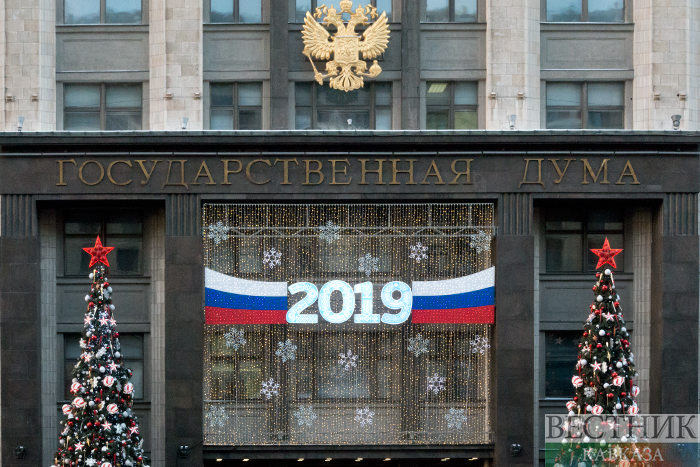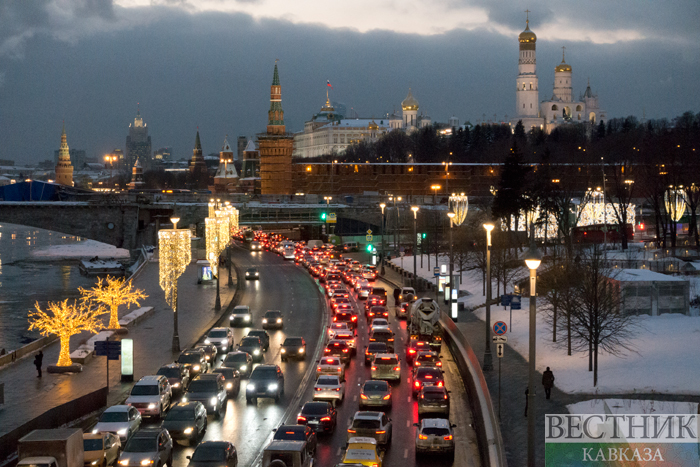The year 2019 marks changes in various areas of the country's life. Among other things, a slew of amendments to Russia’s Tax Code concerning both individuals and legal entities come into force starting from January 1, 2019.
According to Russia's president Vladimir Putin, the increase in the VAT rate from 18% to 20% is due to the need to maintain the non-oil-and-gas deficit at a certain level.
It is expected that the raise will annually bring to the federal budget additional 620 billion rubles (about $9.8 billion) since 2019. A 10% discounted VAT rate is to be retained as concerns socially important goods like foodstuffs, with the exception of delicacies; products for children; printed periodicals; books related to education, science and culture; and medicines.
The cancellation of property tax for legal entities has become one of important amendments to the Code. Russia's First Deputy Minister, Finance Minister Anton Siluanov believes that will serve as a compensation measure for the business sector given the VAT (value-added tax) hike from 18% to 20%. According to Moscow’s department of economic policy and development, the tax exemption on organizations’ moveable property will diminish the debt burden on businesses in the Moscow Region by around 13%.
The rules for control transactions have changed for legal entities starting January 1. Now the Tax Service will monitor deals if the income figures during the calendar year surpass 60 mln rubles (or $862,870) for transactions with foreign affiliated parties, and 1 bln rubles (or $14.38 mln) for domestic transactions. The measure is set to help the Tax Service keep track of companies amid cancelled transfer pricing and the abolished institution of the consolidated taxpayers group.

Big agriculture enterprises will be obliged to pay the value-added tax instead of the unified agricultural tax starting January 1, 2019, unless they exercise the right to the exemption. A source in the Agriculture Ministry said that the new regulation enables agriculture producers with an aggregate income of less than 100 mln rubles ($1.4 mln) in 2018 to apply to the tax authorities for a VAT tax exemption. The ministry suggests that the measure helps ease red tape and mutual settlements between big and small producers.
The law envisaging a gradual increase in the retirement age in Russia to 60 years for women and 65 years for men will come into effect on January 1, 2019. The transition period will last until 2028.
The reform of the pension system became one of the most debated legislative initiatives of the past year. The initial draft law underwent significant changes. The amendments were made after President Vladimir Putin instructed the government to soften the original version and to introduce a number of additional benefits, as well as measures to support people of pre-retirement age.
Eventually, the draft law was signed by the head of the state on October 3. It stipulates a gradual increase in the retirement age by 5 years - to 65 for men and 60 for women instead of 63, as it was initially proposed by the Cabinet. The amendments also reduce by three years the length of service that gives the right to early retirement: for men it was reduced to 42 from 45 years as it was originally planned, for women it was reduced to 37 from 40 years.
In the first several years the retirement age will be raised by six month annually. Those citizens who were to retire under the old law in the next two years will be given the right to qualify for a pension six months earlier than the new retirement age. For example, if a person, according to the new retirement age, is due to retire in January 2020, he will be able to do it already in July 2019.

The average pension in Russia in 2018 was 14,100 rubles ($202). In 2019, according to the new law, the average monthly old-age pension for non-working pensioners will increase to 15,000 rubles ($215), and by 2024 - to 20,000 rubles ($286) per month.
The new law preserves the right to early retirement for people working in harmful and dangerous conditions, for those injured as a result of radiation or man-made disasters. Also, the law secures early retirement to one of the parents or the guardian of a disabled person from childhood.
The law secures benefits for permanent residents in the Far North regions of Russia and equal areas, those who worked there as reindeer herders, fishermen and hunters. Under the new law disabled war veterans, persons with visual disabilities and other categories of disabled people are eligible to early retirement. Early retirement benefits will be given to women who gave birth to more than two children and have the experience of working in the Far North and in equal areas. The law still secures benefits for women who have given birth to five or more children and raised them up to eight years. The law also gives the right to early retirement to women with three and four children. They will be able to retire three and four years earlier than the generally established retirement age. Under the new law women who have 37 years of work experience and men who have 42 years of work experience also have the right to early retirement but not earlier than 55 years and 60 years respectively.






